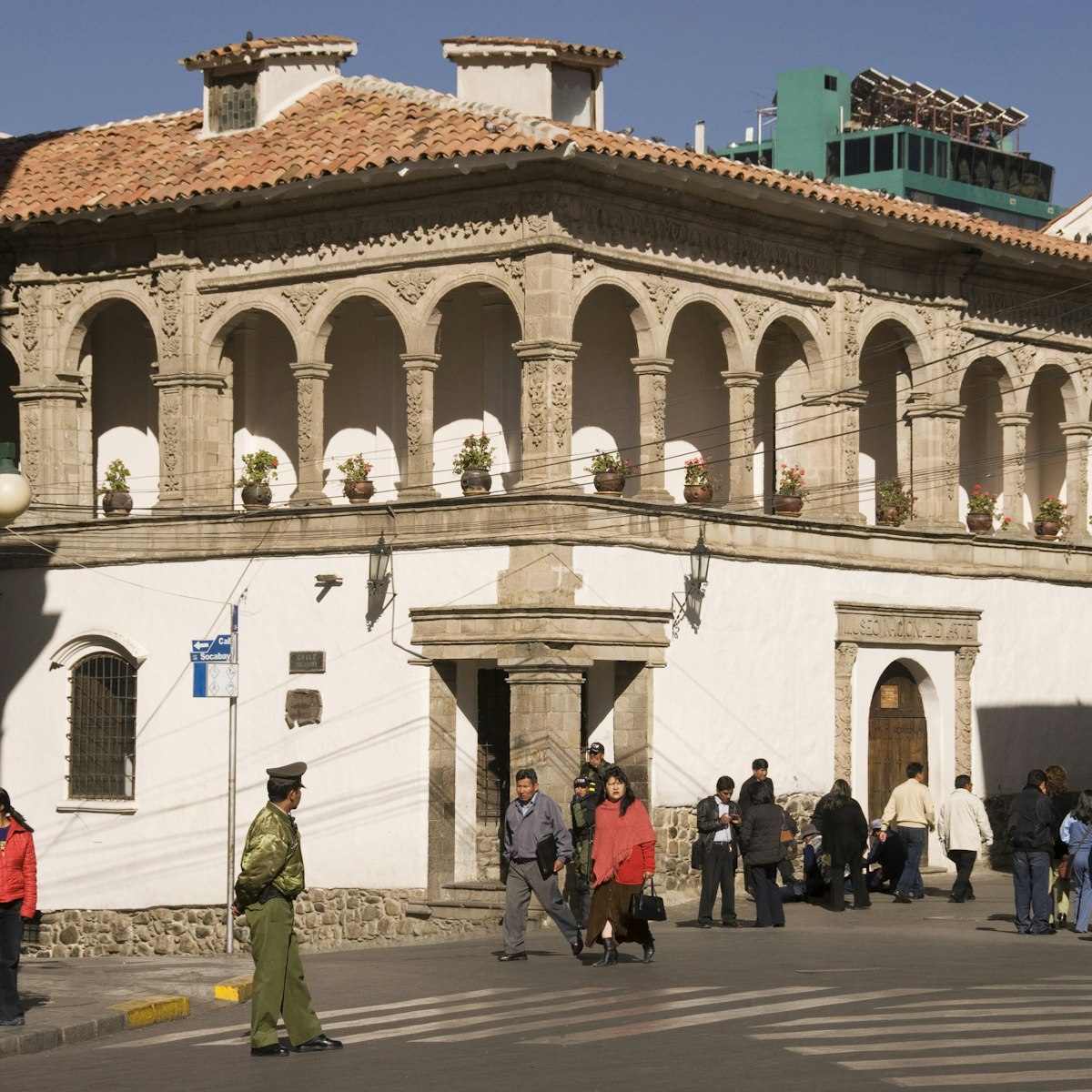La Paz’s best-preserved colonial street is home to four small museums. They are all clustered together and can generally be bundled into one visit. Buy tickets at the Museo Costumbrista and continue to the Museo de Metales Preciosos, Museo del Litoral and Casa de Murillo.
The Museo Costumbrista Juan de Vargas contains art and photos, as well as some superb ceramic figurine dioramas of old La Paz: a representation of akulliko, the hour of coca-chewing; the festivities surrounding St John the Baptist’s Day, and the hanging of Murillo in 1810. Also on display are colonial artifacts and colorful dolls wearing traditional costumes. A pleasant cafe is on the premises.
Also known as Museo del Oro (Gold Museum), the Museo de Metales Preciosos houses four impressively presented salons of pre-Columbian silver, gold and copper works and pieces from Tiwanaku.
The diminutive Museo del Litoral consists mainly of historical maps that defend Bolivia’s emotionally charged claims to Antofagasta and Chile’s Segunda Región.
Once the home of Pedro Domingo Murillo, a leader in the La Paz Revolution of July 16, 1809, the Casa de Murillo displays collections of colonial art, furniture and household items of glass and silver that once belonged to Bolivian aristocracy.







